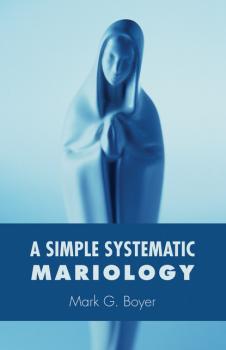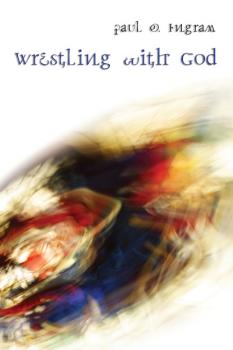Словари
Различные книги в жанре СловариThe Beauty of the Faith
Nearly everyone finds beauty compelling, so Christian apologists should devise ways to present an «aesthetic Christian apologetic.» Nearly all apologists admit that the beauty of a life well lived and the beauty of the Christian community (along with the use of media and the arts) are not only helpful for apologetics but essential in a postmodern culture. In fact, it is frustrating to see how many apologists mention the need for such an approach but go on devoting most of their energies to traditional approaches. This book is different. It clearly shows the pros and cons of traditional approaches and offers a fresh perspective as well, arguing that beauty is the most compelling apologetic, and suggesting ways to implement such an approach. It demonstrates how Western culture arrived in its current unfortunate situation and uses both Scripture and figures like Athenagoras and Jonathan Edwards to challenge current views on apologetics.
A Simple Systematic Mariology
Mary, the mother of Jesus, is known in the Catholic Church as Our Lady of Grace, Our Lady of Fatima, Our Lady of Mount Carmel, Our Lady of Sorrows, Our Lady of Guadalupe, Our Lady of Lourdes, Our Lady of the Rosary, Our Mother of Perpetual Help, and more. Her various titles describe her various functions within the Church.
Many books on Mariology, the study or doctrine relating to the Virgin Mary, either treat the liturgical aspects or the devotional aspects of the topic. Here, they are brought together in one seamless presentation.
A good Mariology begins with a good Christology. Out of Mariology, firmly grounded in and flowing from Christology, there arise the liturgical and devotional aspects of the life of the Church. The Litany of the Blessed Virgin Mary (Litany of Loreto) summarizes the attributes of Mary of Nazareth from both liturgy and devotion. This book looks at those attributes individually and collectively, and demonstrates how they are contained in the solemnities, feasts, memorials, and optional memorials of the Blessed Virgin Mary throughout the liturgical year in the Scripture texts. Where applicable, devotionals seeking Mary's intercession are included.
Artisanal Theology
Paradox and surprise face those who pursue deeper spiritual practice, theological wisdom, and even a religious calling «into the ministry.» Unbeknownst to incoming students, the pursuit of theological education in established institutions today furthers a faith that is recognizable in delight and compassion, even as it may just as easily deform it into a moral duty and autonomous professionalism so divisive in today's religious ecology. How may those drawn into ministry formation today receive its deep theological treasures and sustain a vibrant faith with a theologically expressive delight able to companion the suffering of self and others?
Artisanal Theology explores the paradoxes and surprises that await those walking in the worlds of theological education–the local congregation, the academy, the tradition/denomination. Part handbook, part witness, it offers guidance for the path of intentional formation within contemporary institutions of theological education, whose riches may be mined in a disciplined spiritual stewardship and grounded in radically covenantal companionship. Just like artisanal bread blends the classical methods of bread-baking with modern conveniences, so an artisanal theology relies upon the personal and communal touch of human relationship amidst the contemporary forms of programmatic theological education. An artisanal theology offers an articulate and traditionally-rooted faith perspective grounded in covenantal companionships sustained in contexts of church, tradition, and, most importantly, practice. Ultimately, an artisanal theology witnesses beyond the anticipated political divides to the Triune God-among-us, known in a theologically expressive delight, able to companion the suffering of self and others.
Christian Life and Practice
This book is a study of the Christian life and the practice of Christians and the church from an Anglican perspective. It begins with an analysis and explication of the structure and process of the Christian life before God in the church and the world involving a five-fold rule of life and the relation of this to spiritual direction. This is followed by an analysis and critique of the current spirituality movement, which arose in the 1970s and which has come to dominate and mislead the churches. A sequel to the latter explains the origin of the spirituality movement in the current Romantic movement that arose in the 1960s and has influenced all aspects of our culture with ambiguous results. Next there is a critique of contemporary parish ministry as practiced in residential parishes that at best ministers only to the private lives of its members, followed by a fictional story of such a residential parish that suggests a new departure in parish ministry. Then there is a critique of preaching in the Episcopal Church that is generally considered to be poor, and a proposal of a way to overcome this. The concluding three chapters treat a fundamental problem in our approach to private prayer and a way to resolve this, a proposal for a way to overcome the current impasse in the Anglican Communion concerning homosexuality, and a meditation on the responsibility of Christians in public life.
Wrestling with God
Wrestling With God is concerned with conceptualizing a Christian pluralist theology of religious experience primarily in dialogue with Buddhism, but also in conversation with Confucian, Daoist, Hindu, Jewish, and Islamic traditions as well as dialogue with the natural sciences. It is through such dialogue as a form of theological reflection that Christians can hope for the emergence of new forms of faith and practice that are relevant to the complexities of contemporary life. The author's style and openness make this accessible to the general reader as well as the scholar.
Until the Rain
The Second Book of Samuel in the Hebrew Bible tells of a woman named Rizpah whose sons are sacrificed in the power struggle between the houses of Saul and David: Then Rizpah the daughter of Aiah took sackcloth, and spread it on a rock for herself, from the beginning of harvest until rain fell on them from the heavens; she did not allow the birds of the air to come on the bodies by day, or the wild animals by night. (2 Sam 21:10) Was Rizpah driven by the depths of despair? Or was she protesting in a woman's silent anger? The same kind of quiet defiance is playing itself out in contemporary Palestine. Is it grief or resistance–or the foundation of a new theology?
The Love that Will Not Let You Go
This book is an alternative to what passes for Christianity in movies, television, videos, novels, political campaigns, and, sadly, in many churches. It is for Christians, people of other faiths, and people of no faiths. It is for those who have given up on religion and those with secret doubts about concepts and biblical narratives most Christians seem to believe easily.
Douglas Heidt contends that traditional Christian theology deals primarily with intellectual conclusions and emotion, leaving seekers with the idea that if they believe certain propositions, and love God, they will lead safe, happy lives, and go to heaven when they die. But this book argues that Jesus didn't teach a theological or ecclesiastical system. By his words and life he simply revealed a way to live, the way God created life to be lived, the life of sacrificial, eternal, universal love, kindness, forgiveness, justice, and compassion. Life's goal is not to believe certain things and go to heaven. Life's goal is to love your neighbor. This uncomplicated assertion has crucial implications for the church, how we understand the Bible, the Christian story, and the Christian life and its conclusion. It presents ideas that may be challenging, and describes how being Christian is not what you think, it's what you do.
Counter-Cultural Paradigmatic Leadership
In Counter-Cultural Paradigmatic Leadership Gary Choong challenges the reader to consider the mind-set, motive, and manner of leadership in any Asian setting that is suffused with contemporary practices of paternalistic authority. It provides a counter-cultural paradigm shift for the Christian leader who desires to honor God with mind and heart based on a biblical, moral foundation and to lead with character, biblical core values, and a commitment to further the cause of Christ. The counter-cultural paradigms and practices of integrity, humility, and empowerment address the ills of contemporary paternalistic authority such as didactic leadership, guarding and building of reputation, protection of dominance, autocratic control, nepotism, cronyism, ambivalence, lack of accountability, overstaying one's effectiveness, and underestimating one's subordinates. This counter-cultural paradigmatic Christian leadership deals first with the Christian leader's character and spiritual formation over a lifetime; second, it seeks to influence and impact team members toward biblical coherence and congruence in discipleship, team ministry, and leadership development; third, it encourages the leader to consider ways to address organizational behavioral dysfunctions, and hence organizational coherence, congruence, and effectiveness, particularly with a view toward leadership succession and organizational significance.
Love That Rejoices in the Truth
Love, says the apostle Paul, «does not rejoice over injustice, but rejoices in the truth» (1 Corinthians 13:6). The theological explorations undertaken here all deal in one way or another with the liberating promise and the perplexing problem of truth in Christian life and witness, and with the ways that Christian theology and theological education in their various modes struggle both to seek the truth and to foster the aptitude to honor it.
Sermons from Mind and Heart
Sermons from Mind and Heart attempts to show the week-by-week theological work that a pastor does. The combining of the intellectual with the emotional is rooted in the categories of logos and pathos from Aristotle's Rhetoric. Some of the sermons have substantive theological reflections with multiple sources and are thus heavily footnoted; other sermons have no footnotes. This doesn't mean that any sermon lacks logos or pathos but that there is an interplay, a back-and-forth, of a pastor struggling to communicate the Gospel in a «this is that» way that honors both the «then» of Scripture and the «now» of contemporary life. Rhetorical scholarship and methodology are important in understanding the content and the structure of the sermons. What matters most is the sense that these sermons are an ongoing theological conversation between the pastor and his congregation. Sermons, after all, are meant to be heard, and they exist in the moment as authentic rhetorical acts. All other versions of the sermon, including this written form, are only echoes of the primal sermonic experience.









